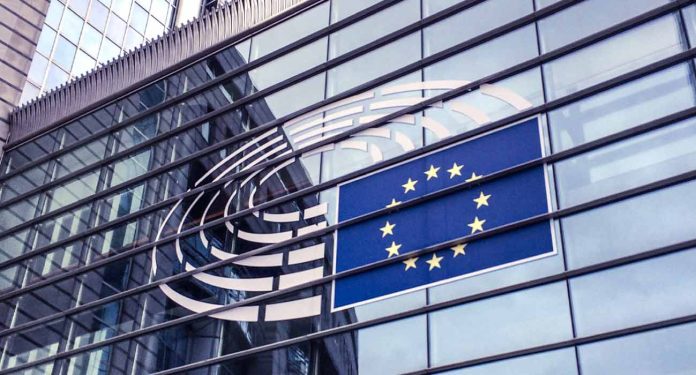Europe’s new Digital Omnibus could end cookie fatigue, reshape AI data rights, and centralize enforcement—marking a seismic shift for the adtech industry.
The European digital regulatory landscape, long defined by the rigid frameworks of the General Data Protection Regulation (GDPR), is bracing for a seismic shift. The European Commission is poised to unveil its “Digital Omnibus” package, a comprehensive set of reforms officially presented as a bureaucratic cleanup but viewed by industry insiders as a fundamental rewriting of the rules governing digital advertising, data privacy, and artificial intelligence.
For years, the adtech ecosystem has operated under the heavy blanket of GDPR, navigating complex consent strings, transparency frameworks, and the constant threat of regulatory fines. The Digital Omnibus promises to cut through this red tape. Still, it may fundamentally alter the power dynamics between consumers, privacy advocates, and the tech giants that fuel the digital economy.
The End of “Cookie Fatigue”?
One of the most consumer-facing aspects of the Digital Omnibus is its direct attack on “cookie fatigue.” For nearly a decade, European internet users—and indeed, users globally visiting EU sites—have been bombarded with consent banners. This “click to accept” model, intended to empower users, has resulted mainly in apathy, with frustrated consumers blindly clicking “accept all” just to access content.
The Omnibus aims to reform the ePrivacy Directive, the specific legislation that mandates these banners. Leaked drafts suggest a move toward “streamlined” consent mechanisms. This could mean allowing browsers or device settings to signal consent globally, reducing the need for site-by-site interruptions. For the adtech industry, this is a double-edged sword. While it promises a smoother user experience and potentially higher conversion rates for publishers who no longer annoy their traffic, it also threatens to centralize consent power in the hands of browser gatekeepers, such as Google (Chrome) and Apple (Safari), who could unilaterally block third-party tracking signals.
AI, Legitimate Interest, and the Future of Targeting
Perhaps the most significant development for the adtech sector lies in the Omnibus’s treatment of Artificial Intelligence. As AI becomes the engine of modern programmatic advertising—powering everything from dynamic creative optimization to predictive audience modeling—the legal basis for processing data to train these models has been murky. Currently, GDPR heavily favors “explicit consent” (opt-in) for data processing. However, the Digital Omnibus appears ready to codify “legitimate interest” as a valid legal basis for training AI models on personal data.
This is a potential game-changer. Suppose adtech vendors and platforms can claim a legitimate interest in processing user data to refine their AI algorithms without needing explicit, granular consent for every single data point. In that case, the friction in the data supply chain drops dramatically. It would enable more robust modeling and targeting capabilities, breathing new life into an industry that has been stifled by signal loss (due to the demise of third-party cookies).
Critics, however, warn that this opens a “loophole” large enough to drive a server farm through. Privacy advocates argue that “legitimate interest” is a vague standard that companies will inevitably stretch to justify invasive profiling under the guise of “AI optimization.”
Centralizing Enforcement: A New Sheriff in Town?
Beyond the technicalities of cookies and AI, the Digital Omnibus aims to address the “enforcement bottleneck” in the current GDPR regime. Historically, enforcement has been left to national Data Protection Authorities (DPAs), resulting in the “forum shopping” phenomenon, where tech giants establish headquarters in countries perceived as more lenient, such as Ireland or Luxembourg.
The Omnibus proposes a more centralized enforcement mechanism, potentially giving the European Commission itself greater oversight powers or streamlining cross-border cooperation. For adtech companies, this signals the end of the era where they could hide behind an overwhelmed local regulator. A centralized, harmonized enforcement body could operate more efficiently and effectively, creating a more predictable yet potentially more punitive regulatory environment.
What This Means for 2026 and Beyond
As the Digital Omnibus moves from draft to law, the adtech industry must prepare for a period of significant transition. The definitions of “personal data” may be reinterpreted, and reliance on consent banners will likely fade in favor of browser-based signals or AI-driven inference, leading to a shift in the justification for data use from “user permission” to “business necessity” under the legitimate interest clause.
For marketers, the Omnibus represents a pivot point. The era of blunt-force data collection is coming to an end, replaced by a more sophisticated, AI-mediated relationship with consumer data. Those who can build robust, privacy-safe AI models that leverage “legitimate interest” responsibly will thrive. Those who continue to rely on the crumbling infrastructure of third-party cookies and confusing consent pop-ups may find themselves regulated out of existence.
The Digital Omnibus is not just a cleanup; it is a new constitution for the digital market. And for adtech, it is the signal that the next phase of the privacy wars has just begun.










